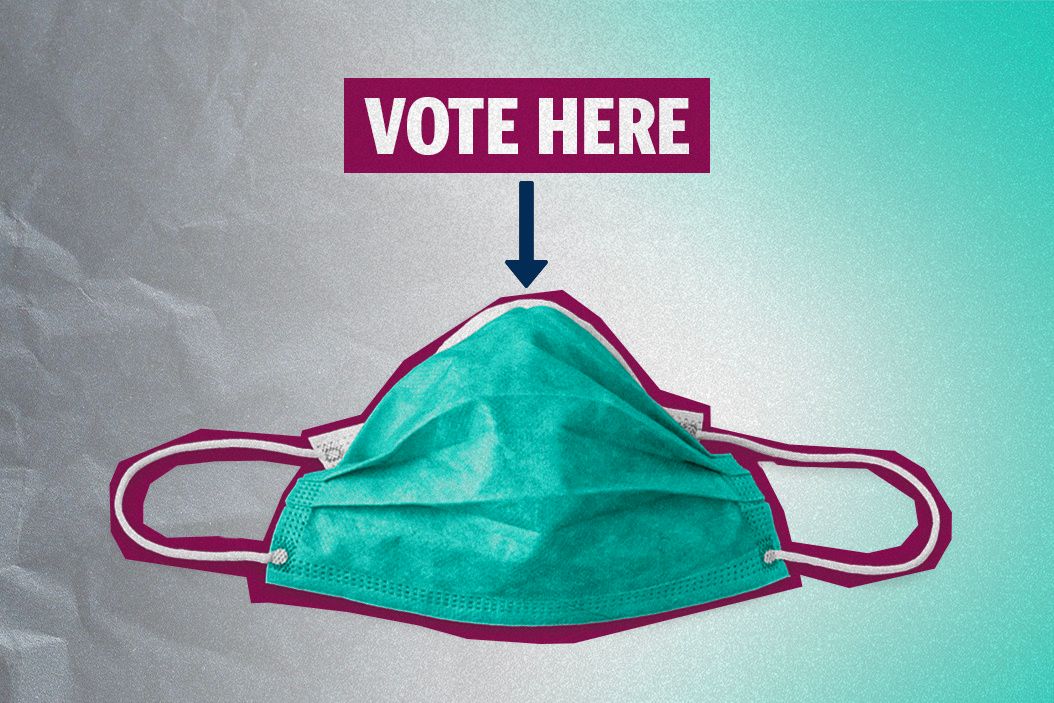If you voted this week in South Korea's national elections, you now know a lot more than most of us about how democracy works in a time of pandemic. Standing in line, you kept your distance from other voters. You allowed poll workers to take your temperature and disinfect your hands. You put on gloves. Then you were permitted to vote.
This process was helped along by the willingness of 550,000 of your fellow citizens to serve as poll workers, to disinfect the polling places themselves, and to ensure everything went to plan. Maybe you were part of the 26% of your country's people who voted early or by mail.
By whatever means you voted, you can be proud that your country posted its highest voter turnout (66.2%) in 28 years — despite a still-dangerous health emergency. As for the result, Prime Minister Moon Jae-in's party, which is responsible for the aggressive restrictions meant to contain the virus, won a landslide victory.
Question 1: But will these methods of "corona-voting" work in other countries?
Take the United States, for example, where elections will be held in November. Will people accept the kinds of restrictions that made the South Korean elections safe?
Certainly not everyone. This week, protesters gathered in Michigan and North Carolina to defy the right of government to issue stay-at-home orders and ban large gatherings. More protests like these, as well as protests against government-mandated social distancing, are coming to other states.
These demonstrations are based on a Constitutional argument that government can't impose unwarranted physical restrictions on citizens. "Quarantine is when you restrict movement of sick people. Tyranny is when you restrict the movement of healthy people," said one protest organizer. A growing number of Republican lawmakers support these movements.
Fast forward to November: If COVID-19 remains a fact of life, or if a second wave of infections this fall follows a period of summer quiet, will those Americans who resent government health restrictions keep their distance as they stand in line to vote? Will they allow poll workers to disinfect their hands and take their temperature? Will they don gloves?
There's another question: Will these health precautions prove impossible to implement, because elections in the United States are governed not by the federal government, as in South Korea, but by the not-so-united states themselves? Some states may provide the number of people and equipment needed to enforce these voting rules. Others won't.
Question 2: Does this mean, then, that this year's US elections will be decided by strong voter turnout from those least worried about COVID-19 and weaker turnout from those who most fear infection? If so, that will be a problem for Democrats, since polls have shown Republicans are significantly less concerned about the virus and much more suspicious of government attempts to contain it with restrictions on individual freedom.
But consider this: More than six months from election day, there are six states where competition between President Donald Trump and Democratic Party challenger Joe Biden appears close enough to decide the US presidential election: Michigan, Wisconsin, Pennsylvania, Florida, North Carolina, and Arizona.
All six of those states allow vote by mail without restrictions.
Millions of mailed ballots will pose logistical challenges of their own. There are also congressional elections, where outcomes will be even harder to predict.
But voting by mail in those six crucial states will help avoid arguments about whether fear of COVID-19 elected an American president.
More For You
America’s new National Security Strategy confirms what Europeans have feared for months: Washington now sees a strong, unified European Union as a problem to be solved, not an ally to be supported.
Most Popular
The power of sports
What’s Good Wednesdays™, December 10, 2025
Walmart's $350 billion commitment to American jobs
In this episode of Tools and Weapons, Microsoft Vice Chair and President Brad Smith sits down with Ed Policy, President and CEO of the Green Bay Packers, to discuss how purpose-driven leadership and innovation are shaping the future of one of the world’s most iconic sports franchises. Ed shares how technology and community-focused initiatives, from Titletown Tech to health and safety innovations on the field, are transforming not just the game of football, but the economy and culture of Green Bay itself. He explains how combining strategic vision with investment in local startups is keeping talent in the Midwest and creating opportunities that extend far beyond Lambeau Field.
Subscribe and find new episodes monthly, wherever you listen to podcasts.
More than a week after Hondurans cast their ballots in a presidential election, the country is still stuck in a potentially-dangerous post-election fog.
